- Home
- Liver Cleanse
- Milk Thistle Liver Detox
Milk Thistle Liver Detox
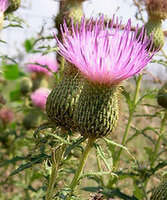
The Benefits of Milk Thistle For The Liver
Milk Thistle Liver Detox is a commonly searched for term on the internet. It would seem that many people know they are abusing their livers and have heard that Milk Thistle could be the answer to their excessive lifestyle.
This article provides basic information about the herb, Milk Thistle--common names, uses, potential side effects, and resources for more information.
Milk thistle is a plant that is native to the Mediterranean region. It has been used for centuaries as a remedy for a variety of ailments, especially liver problems.
Names--milk thistle, Mary thistle, holy thistle. It is also sometimes called silymarin, which is actually a mixture of the herb's active components, including silybinin (also called silibinin or silybin).
Latin Name--Silybum marianum
Milk Thistle Uses - Milk Thistle Liver Detox
Milk Thistle has shown to have protective effects on the liver and improve its function. Typical uses include the treatment of liver cirrhosis, chronic hepatitis (liver inflammation), and gallbladder disorders. Treatment claims also include:
- Lowering cholesterol levels and triglyceride levels in the body by inhibiting the enzyme HMG-CoA reductase, which helps regulate cholesterol production. Additionally, silymarin can potentially reduce low-density lipoprotein (LDL) cholesterol levels while increasing high-density lipoprotein (HDL) levels. Studies also suggest that milk thistle may help prevent oxidative damage to cells caused by free radicals, which is linked to accelerated aging and increases in LDL cholesterol. The antioxidant properties of milk thistle can also help reduce inflammation, a condition associated with high blood pressure and increased risk of heart disease.
- Research has suggested that milk thistle may help improve type 2 diabetes, potentially by aiding in the production of insulin. Studies have found that silymarin - the active ingredient in milk thistle seed extract - may help lower blood sugar levels and reduce insulin resistance. Additionally, researchers suggest that milk thistle may help regulate glucose metabolism by blocking an enzyme known as dipeptidyl peptidase (DPP-4), which is thought to play a role in type 2 diabetes development. By blocking this enzyme, milk thistle can help restore normal glucose levels and potentially reduce the need for medications used to treat type 2 diabetes.
- Reducing the growth of cancer cells in breast, cervical, and prostate cancers.
How Milk Thistle Is Used
The active ingredient in milk thistle is silymarin, which acts as an antioxidant and anti-inflammatory agent. It is believed to help prevent cell damage caused by free radicals and potentially promote new cell growth in damaged areas of the liver. It also helps restore glutathione - an important antioxidant compound - and has been suggested to reduce levels of enzymes linked with alcoholic liver disease, such as ALT and AST.
The seeds of the milk thistle plant are used to prepare capsules containing powdered herb or seed extracts and infusions (strong teas).
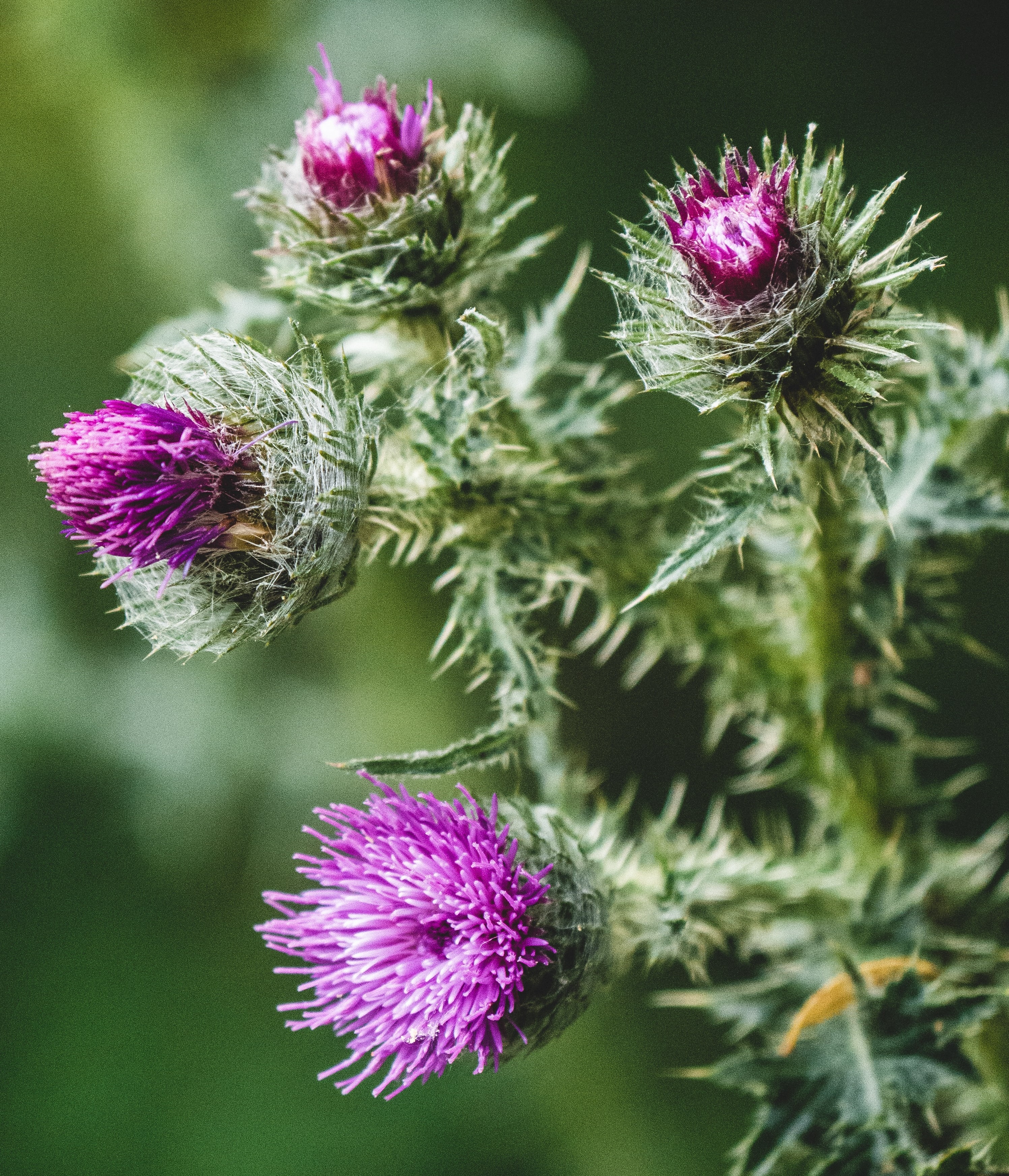
Milk Thistle Research and Scientific Evidence
There have been a few studies of milk thistle on liver disease in humans. Some promising data has been reported, but study results at this time are mixed.
Although some studies conducted outside the United States support claims of oral treatment to improve liver function, there have been flaws in study design and reporting. To date, there is no conclusive evidence to prove its claimed uses.
NCCAM is supporting a phase II research study to better understand the use of milk thistle for chronic hepatitis C. With the National Institute of Diabetes and Digestive and Kidney Diseases, NCCAM is planning further studies in the treatment of chronic hepatitis C and nonalcoholic steatohepatitis (liver disease that occurs in people who drink little or no alcohol).
The National Cancer Institute and the National Institute of Nursing Research are also studying milk thistle, for cancer prevention and to treat complications in HIV patients.
Side Effects and Cautions
In clinical trials, milk thistle generally has few side effects. Occasionally, people report a laxative effect, upset stomach, diarrhea, and bloating. It can produce allergic reactions, which tend to be more common among people who are allergic to plants in the same family (for example, ragweed, chrysanthemum, marigold, and daisy).
It is important to inform your health care providers about any herb or dietary supplement you are using. This helps to ensure safe and coordinated care.
Milk Thistle Information Sources
Agency for Healthcare Research and Quality. Milk Thistle: Effects on Liver Disease and Cirrhosis and Clinical Adverse Effects. Evidence Report/Technology Assessment no. 21. Rockville, MD: Agency for Healthcare Research and Quality; 2000. 01-E024.
Milk thistle (Silybum marianum). In: Coates P, Blackman M, Cragg G, et al., eds. Encyclopedia of Dietary Supplements. New York, NY: Marcel Dekker; 2005:467-482. Accessed at Dekker Encyclopedias Web site on August 22, 2005.
Natural Medicines Comprehensive Database. Accessed on August 22, 2005.
Milk thistle fruit. In: Blumenthal M, Goldberg A, Brinckman J, eds. Herbal Medicine: Expanded Commission E Monographs. Newton, MA: Lippincott Williams & Wilkins; 2000:257-263.
National Center for Complementary and Alternative Medicine. Hepatitis C and Complementary and Alternative Medicine: 2003 Update. National Center for Complementary and Alternative Medicine Web site. Accessed on August 22, 2005.
Supplement Safety Article offers important information to consider before you take supplement of any kind.
Liver Detox Mainpage
It’s important to note that milk thistle should not be confused with traditional medications or taken as a substitute for them. Instead, it should be viewed as another option for protecting your liver health during periods of excess drinking or drug use - preferably taken along with other lifestyle modifications like reducing alcohol intake and quitting smoking.
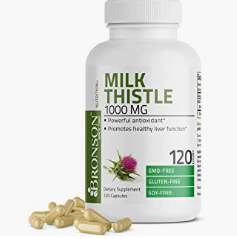
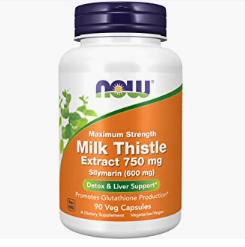
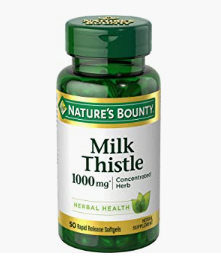



New! Comments
Have your say about what you just read! Leave a comment in the box below.